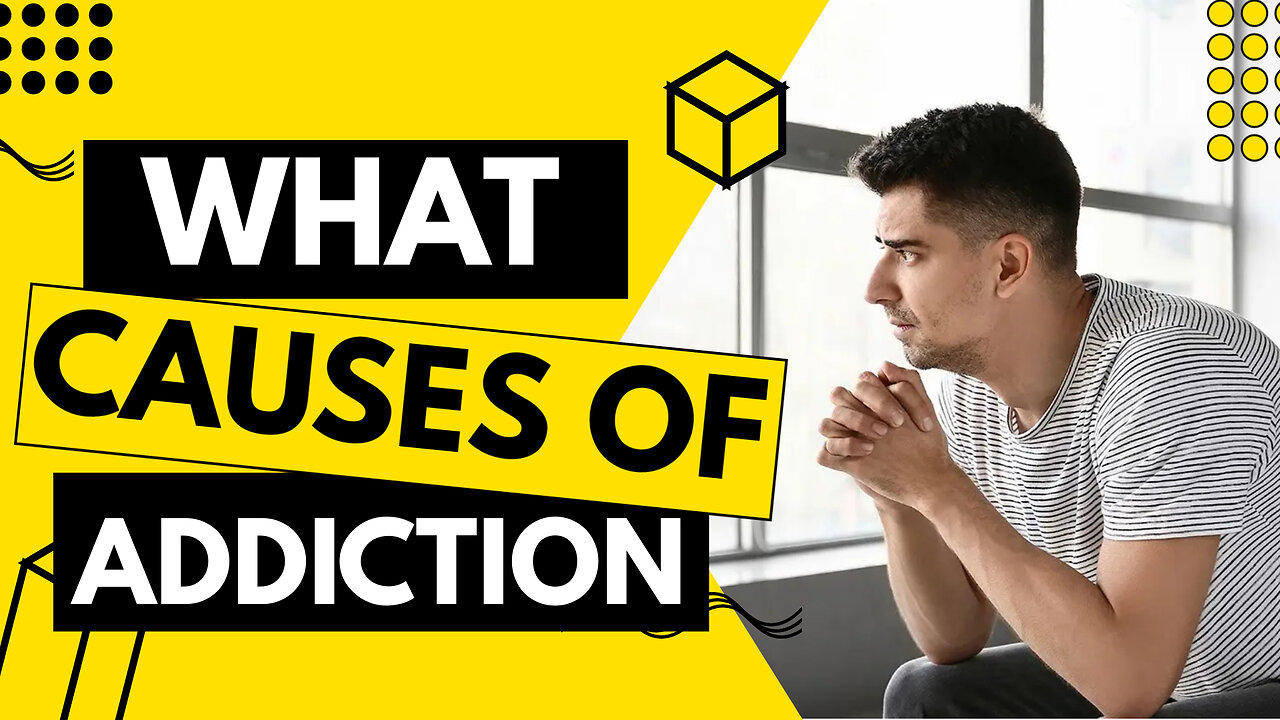Premium Only Content

What Causes Addiction - The Science of Addiction
In the realm of neuroscience, psychology, and public health, addiction remains a formidable challenge. From substance abuse to compulsive behaviors, addiction can exert a powerful grip on individuals, often leading to devastating consequences for both the affected individual and society at large. Understanding the intricate mechanisms that underpin addiction is crucial for developing effective prevention and treatment strategies. In this comprehensive exploration, we delve deep into the science of addiction, unraveling its causes, manifestations, and potential avenues for intervention.
Before delving into the science behind addiction, it’s essential to establish a clear definition of what addiction entails. Addiction is a complex condition characterized by compulsive engagement in rewarding stimuli despite adverse consequences. This definition encompasses a wide range of addictive behaviors, like play games, internet addiction, and compulsive eating.
At its core, addiction involves alterations in brain function and neurochemistry, fundamentally reshaping the way individuals process reward, motivation, and decision-making. Key neurotransmitter systems, including dopamine, glutamate, and serotonin, play pivotal roles in the development and maintenance of addictive behaviors. Dopamine, in particular, is implicated in the brain's reward circuitry, reinforcing pleasurable experiences and driving the cycle of addiction.
While environmental factors undoubtedly influence addiction, genetic predispositions also contribute significantly to an individual's susceptibility to addictive behaviors. Family and twin studies have provided compelling evidence of genetic heritability in addiction risk, with certain genetic variations increasing the likelihood of developing substance use disorders or other addictive behaviors.
Psychological processes, including stress, trauma, mental health disorders, and personality traits, also contribute to the development of addiction. Many individuals turn to addictive substances or behaviors as a means of coping with negative emotions or seeking temporary relief from psychological distress. Moreover, certain personality traits, such as impulsivity and sensation-seeking, are associated with an increased risk of addiction.
-
 1:13:42
1:13:42
Sarah Westall
7 hours agoHow Bitcoin was Hijacked, Palantir is a Deep State Upgrade & more w/ Aaron Day
33.8K7 -
 15:59
15:59
ArynneWexler
9 hours agoAll The Reasons You're Right to Fear Zohran Mamdani | NN6
19.7K4 -
 LIVE
LIVE
Side Scrollers Podcast
14 hours ago🔴FIRST EVER RUMBLE SUB-A-THON🔴DAY 4🔴BLABS VS STREET FIGHTER!
1,495 watching -
 2:52:41
2:52:41
DLDAfterDark
5 hours ago $2.91 earnedGlock's Decision - How Could It Impact The Industry?
26.5K4 -
 25:57
25:57
The Kevin Trudeau Show Limitless
1 day agoThe Sound Of Control: This Is How They Program You
46K10 -
 8:29
8:29
Colion Noir
16 hours agoThree Masked Idiots Show Up at Her Door — Here’s What Happened Next
52.1K33 -
 15:38
15:38
Cash Jordan
11 hours agoPortland Zombies EMPTY 52 Stores… Mayor FREAKS as “Sanctuary” SELF DESTRUCTS
61K76 -
 1:23:21
1:23:21
Precision Rifle Network
1 day agoS5E4 Guns & Grub - Dustin Coleman of ColeTac
16.2K4 -
 1:09:25
1:09:25
Donald Trump Jr.
11 hours agoCorrupt UN Carbon Tax Exposed, Interview with John Konrad | TRIGGERED Ep.285
163K82 -
 42:58
42:58
TheCrucible
9 hours agoThe Extravaganza! EP: 59 with Guest Co-Host: Rob Noerr (10/23/25)
98.3K7